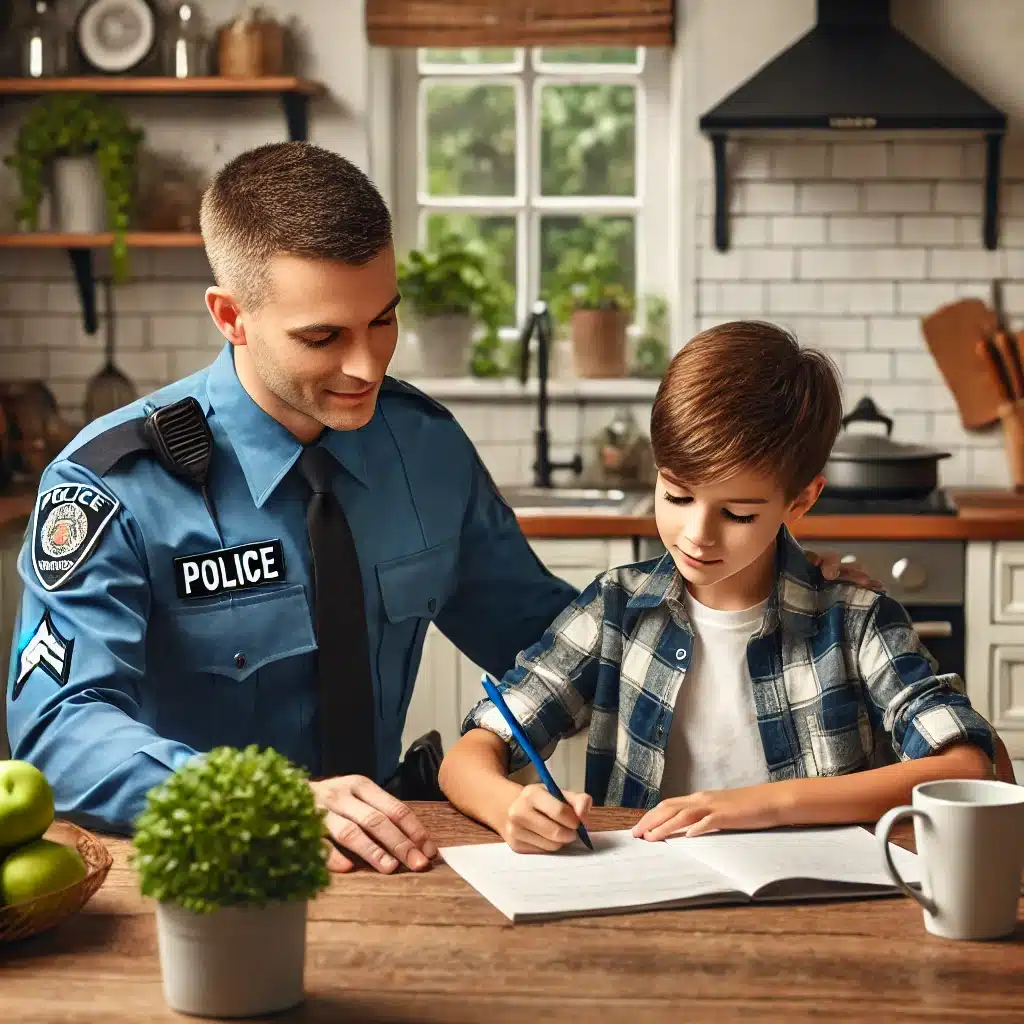
Police officers encounter distinct challenges when navigating child custody issues, largely due to the demands of their profession. Irregular hours, high-stress situations, and unpredictable schedules can complicate custody arrangements, making it harder to demonstrate a stable home environment. Courts often scrutinize these factors closely, requiring officers to take proactive steps in proving their ability to provide a nurturing, supportive environment for their children. Understanding these hurdles and knowing how to effectively address them is crucial for achieving a favorable custody outcome.
Police Officers and Child Custody Issues
Child custody battles are challenging for any parent, but police officers face unique hurdles due to the demands of their profession. The nature of their work can complicate custody arrangements, but understanding key issues can help officers approach these situations with greater confidence.
Understanding the Challenges for Police Officers in Custody Cases
Irregular Work Schedules
Police officers often work long hours, rotating shifts, and overtime. Courts consider availability when determining custody, and irregular schedules may create concerns about consistent care. Officers must address these issues by demonstrating their ability to provide a stable environment for their children.
High-Stress Environment
The risks and stress associated with law enforcement can sometimes lead to misconceptions about an officer’s ability to parent. Opposing parties may attempt to argue that the mental health impact of the job negatively affects parenting capabilities. Officers should prepare to provide evidence of their fitness as parents.
Public Perception
Law enforcement officers face heightened scrutiny in both their professional and personal lives. Courts aim to prioritize the child’s best interests, but public perception of law enforcement can sometimes influence how cases are viewed. Officers need to focus on presenting factual information and documented evidence to support their case.
Key Considerations for Custody Arrangements
Demonstrating Stability
Courts prioritize the well-being of the child. Police officers can strengthen their case by showing they provide a safe, stable home. Presenting a clear plan for managing childcare responsibilities, even with an unpredictable schedule, reassures the court.
Work-Life Balance Strategies
Police officers can showcase their commitment to parenting by implementing strategies like:
- Arranging flexible childcare options.
- Leveraging support from family members.
- Maintaining a consistent routine during their time with the child.
Documenting these efforts helps demonstrate a proactive approach to balancing work and parenting.
Mental and Emotional Well-Being
Addressing the impact of job stress is vital. Courts may consider whether an officer has a healthy outlet for stress. Participating in counseling, maintaining strong support networks, and practicing stress management techniques can strengthen an officer’s custody claim.

Common Misconceptions About Police Officers in Custody Cases
The Job Makes Officers Less Capable Parents
Some people believe the stress and risks of law enforcement hinder parenting abilities. Officers should counter this by highlighting their resilience, dedication, and ability to manage challenges effectively.
Work Schedules Prevent Adequate Parenting
While law enforcement work involves demanding hours, many officers successfully manage parenting through detailed planning. Officers should highlight their efforts to adapt their schedules and maintain quality time with their children.
Steps Police Officers Can Take to Strengthen Their Custody Case
Keep Detailed Records
Document all interactions and activities involving the child. This includes attendance at school events, medical appointments, and extracurricular activities. These records serve as evidence of active involvement in the child’s life.
Show Flexibility
Police officers should emphasize their willingness to work with the other parent to create a custody arrangement that benefits the child. Demonstrating a cooperative attitude reflects positively in court.
Address Safety Concerns
Some courts worry about a child’s safety in the home of a law enforcement officer due to firearms or job-related risks. Officers should explain safety measures in place, such as secure storage for weapons and steps taken to protect the child.
Working with Legal Professionals
Choose a Lawyer Familiar with Law Enforcement

Police officers benefit from hiring lawyers who understand the demands of their profession. These professionals can better address concerns specific to law enforcement in custody cases.
Prepare for Court
Officers should work closely with their attorney to build a strong case. This includes organizing evidence, preparing responses to potential challenges, and rehearsing testimony. Proper preparation ensures a confident and effective presentation in court.
Maintaining a Healthy Co-Parenting Relationship
Prioritise Communication
Effective communication between parents reduces conflict and benefits the child. Police officers should establish regular communication methods to ensure both parents stay informed.
Focus on the Child’s Best Interests
A child-focused approach strengthens the officer’s position in custody matters. Courts value parents who prioritize their children’s needs above personal disagreements.
Conclusion
Police officers encounter unique challenges in child custody cases, primarily due to the demanding nature of their work. However, these challenges can be navigated successfully with proper preparation, compelling evidence, and a child-centered approach. By demonstrating stability, addressing potential misconceptions, and collaborating closely with experienced legal professionals, officers can strengthen their case. Every effort made to prioritize the child’s well-being enhances the likelihood of a favorable outcome in custody arrangements.

Ebook
 If you want to know more about what you can do, CLICK the button below to get your FREE E-book: “Child Custody E-Book”
If you want to know more about what you can do, CLICK the button below to get your FREE E-book: “Child Custody E-Book”
Other Related Articles
- Visitation schedules for police officers
- Texas Custody Battles: Your Ultimate Guide to Winning Custody Disputes
- The Ultimate Guide to Sole Legal Custody in Texas
- Child Custody FAQs
- Uniform Child Custody Jurisdiction and Enforcement Act
- Child Custody Disputes Because of Ex-Spouse’s New Partner
- When do courts award sole custody to Texas fathers?
- Understanding Texas Child Custody
- Can my 10-year-old decide who they want to live with?
- Can a 13-year-old choose which parent to live with?
- Determining the primary residence of your child in a Texas family law cases
- Can cannabis use affect your parenting and custody rights?
Frequently Asked Questions (FAQs) – Child Custody in Texas
In Texas, it is generally not permissible for a spouse to take a child without the other spouse’s permission or a court order. Both parents typically have equal rights to custody and visitation unless otherwise determined by a court. If a spouse takes a child without consent, it may be considered a violation of the law and the other parent’s rights.
No, your wife cannot unilaterally keep your child from you in Texas, assuming both parents have established legal rights to custody or visitation. If there is a custody order in place, both parents are obligated to follow it. If there is no custody order, it is generally advisable to seek legal assistance to establish a formal custody arrangement.
In Texas, it is important to emphasize that a parent cannot take a child from the other parent without a court order or the other parent’s consent. Doing so can have legal consequences and may negatively impact future custody proceedings. It is always recommended to resolve custody disputes through legal channels and obtain a court-approved custody order.
While the police have the authority to intervene in situations involving imminent danger or violations of the law, child custody disputes are typically civil matters that require resolution through the family court system. If a custody order is in place and one parent refuses to comply, the aggrieved parent may need to seek enforcement through the court rather than involving the police directly.



